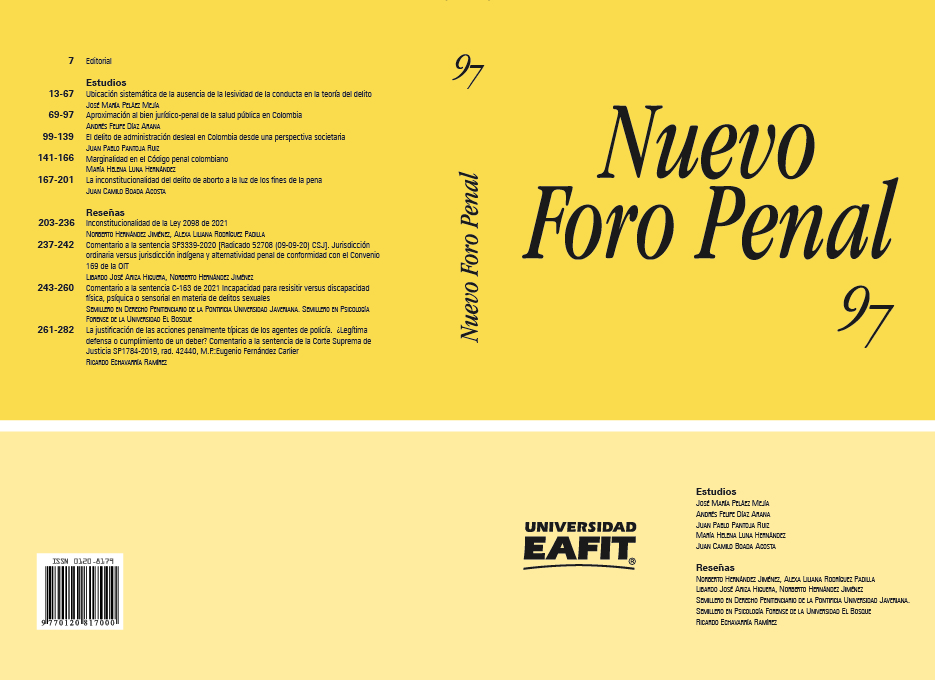Improper management crime in Colombia. A corporate perspective
Main Article Content
Keywords
Judgment Rule, criminal law, corporate law, disloyal administration, social action of liability, conflicts of interest, economic criminal law, fiduciary duties, loyalty, abuse of office.
Abstract
The offence of disloyal administration, established by Article 250B of the Colombian Penal Code, was created as an instrument to combat corruption in the private sector. The Colombian legislator was inspired by the Spanish legal system to criminalize the act of the administrator who, abusing his or her functions, disposes of company assets or incurs contractual commitments at the company's expense, causing an economically assessable damage. However, to understand when the administrator acts outside his functions and abuses them requires a closer look at company law, which originally regulates the duties of administrators. This paper studies this relationship between criminal law and corporate law to seek to give content to the crime of unfair administration under the theory of the fiduciary duties of the administrator in Colombia. After this, he studies the particularities of the type of unfair administration, pointing out that its wording could be improved, since the promoters of companies in formation were not included, the damage should be predicated on the company and not on its partners, and any administrator who acts for a benefit other than that of the company also abuses the functions of his or her position. Finally, some general conclusions are presented.

